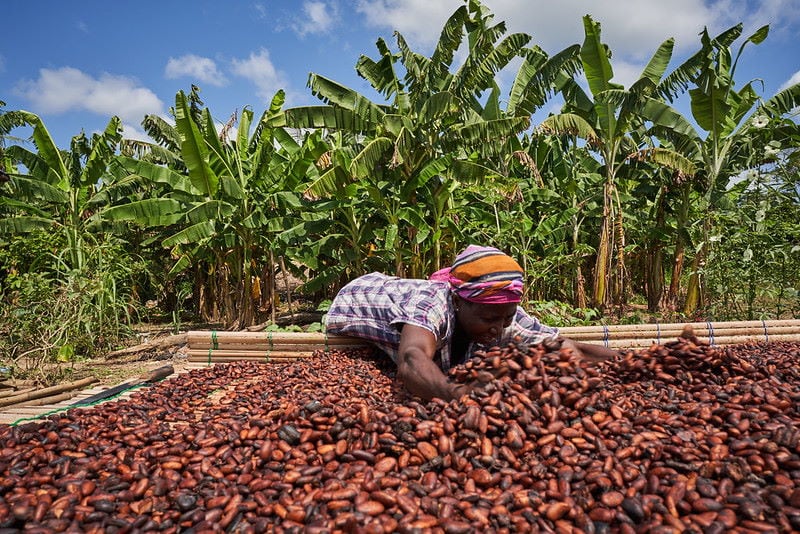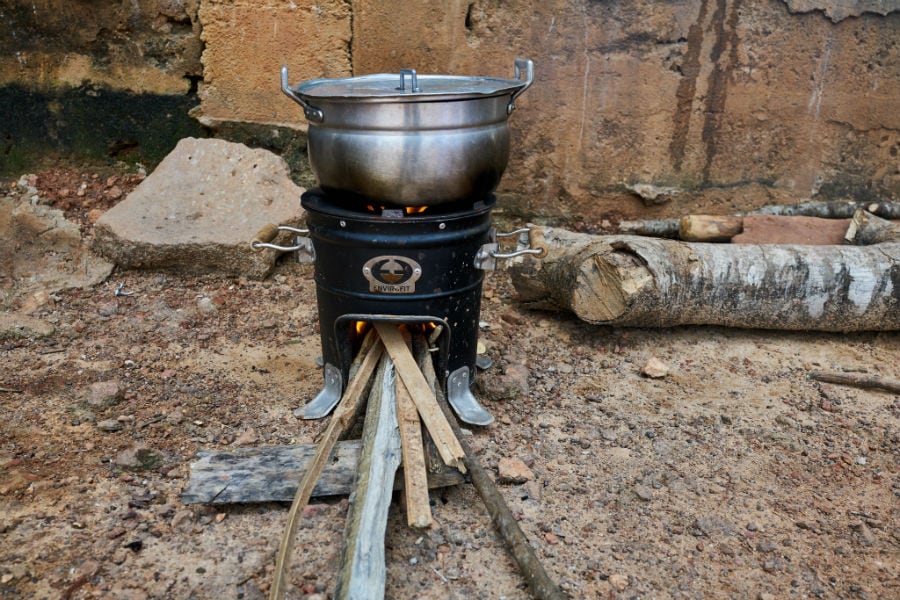Leading cocoa supplier Barry Callebaut has announced it is 'well on track to have 100% sustainable chocolate by 2025' after it released its Forever Chocolate Progress Report 2018/19, its third progress report since the launch of its in-house sustainability plan in 2016.
The group said it sourced 47% of the cocoa and 54% of the other ingredients it uses sustainably.
"This is a great achievement and it demonstrates that sustainability is at the heart of our business strategy,” said Antoine de Saint-Affrique, CEO of the Barry Callebaut Group.
The report, independently audited by PwC, reveals Barry Callebaut sources more than 50% of its ingredients sustainably; over 176,000 cocoa farms mapped on location and socio-economic data; 26% of the farmer groups have systems in place to prevent, monitor and remediate child labor; carbon footprint reduced -6.7% despite increased production; over 2.5 million shade trees and cocoa seedlings distributed.
'Cocoa is Ghana - Ghana is cocoa'

- Cocoa was introduced to Ghana by Dutch missionaries in 1815, in 1886, governor Sir William Bradford Griffith, brought cocoa pods from Sao Tome, and raised seedlings at Aburi Botanical Garden for distribution to farmers.
- In 1947 the government established the Ghana Cocoa Board (COCOBOD) as the main government agency responsible for the development of the industry.
- In 2015, Barry Callebaut acquired Nyonkopa, a licensed buying company and direct sourcing and farm services model in Ghana, to reach tens of thousands of farmers, buying their cocoa and giving them access to Cocoa Horizons activities such as famer training and coaching, tools and financing to fund investments in diversification schemes.
- Community-level interventions are a strong part of its program in Ghana - with farmers undergoing sensitization and monitoring to eliminate child labor from the cocoa supply chain.
- ConfectioneryNews was invited to see first-hand some of the initiatives up and running in the country under the Forever Chocolate program. Check out the video to find out more.
The group said it sourced 47% (2017/18: 44%) of its cocoa beans through sustainability programs. This percentage includes the group's Cocoa Horizons program as well as its customers' own programs and external certification organizations such as UTZ Certified, Rainforest Alliance, Fairtrade and Organic. Furthermore, Barry Callebaut sourced 54% (2017/18: 44%) of its non-cocoa agricultural raw materials sustainably. This includes the use of sustainability certification schemes for the respective ingredients, such as dairy.
Using its Katchilè database, as of end 2018/19 the group had full data on 176,984 farms providing key insights into the location, farm size, socio-economic and household data of cocoa farms and their farmers. This data allows Barry Callebaut to offer tailor-made advice at individual farm level on how to improve productivity via Farm Business Plans and Farm Services.
Child labor
The group said it identified 3,867 cases of child labor (-9%) in its cocoa supply chain last year. All cases involved children helping on the family farm that fell under the International Labour Organization's (ILO) definition of the worst forms of child labor.
"For all identified cases remediation is being prepared and for 2,333 of the reported cases remediation has been activated,” a spokesperson said.
Carbon emissions
In pursuit of its target to store more carbon emissions than it produces by 2025, the Progress Report reveals that Barry Callebaut reduced in its corporate CO2 equivalent (CO2e) footprint from 9.10 million tonnes to 8.49 million tonnes in fiscal year 2018/19 (-6.7%), whilst achieving +5.1% volume growth.
"In the past fiscal year we focused on big innovative projects that we know will create the tipping point for a sustainable chocolate supply chain. Our progress report shows that this focus is working, creating tangible impact on the ground for cocoa farmers, cocoa farming communities and all the other players in our supply chain,” said Pablo Perversi, chief innovation, sustainability and quality officer, global head of gourmet, of Barry Callebaut.
Massimo Selmo, global head of sourcing at Barry Callebaut, said: "Traceability is key. You need to know where your ingredients are coming from. In terms of Forever Chocolate, farm mapping has been our key source of data information, with the additional benefit of strengthening our traceability capacity, and we apply a similar data driven approach for all other ingredients which we source besides cocoa. To demonstrate our ingredients are free from deforestation, we have created a heat map to provide an overview of areas where sourcing agricultural raw materials has a high risk of causing deforestation.”

